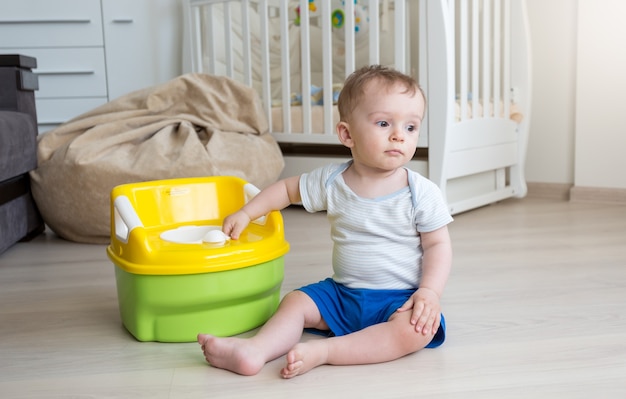
Watching your little one grow and learn new things each day can be remarkable. Just like they pick up skills such as sitting, crawling, or walking, potty training is also a skill that comes with time. Usually, children show they’re ready to start potty training somewhere between 18 months to 3 years. But remember, it’s not all about age. Potty training should only start when they reach a certain emotional and physical maturity level.
Wondering when it’s time to start your toddler’s potty training journey? Just look at their everyday habits and behavior. Each child is unique, but there are some signs that usually suggest they’re ready to start.
Here are nine signs your child might be ready for potty training:
1. Changes in Wet Diapers: If you notice you’re changing fewer wet diapers and your toddler can stay dry for two hours or more, they might be ready.
2. Set Schedule for Bowel Movements: If your child generally poops at the same time every day, like after meals, before bedtime, or early in the morning, use this routine to slowly introduce potty training.
3. Communicating About Body Functions: If your child starts to announce when they need to pee or poo, it shows they’re aware of their own bodily functions and might be ready to start using the potty.
4. They Can Undress Simple Clothes: If your child can pull down their pants or underwear, it’ll make potty training easier.
5. Understands Bathroom Language: If they understand what ‘potty’ or ‘pee-pee’ mean, that’s a good sign they could start potty training.
6. Dislikes Dirty Diapers: If your child shows discomfort with a dirty diaper and tries to take it off or asks for a change, it’s another clue that they’re ready.
7. Shows Interest in Potty: If they start showing curiosity about the potty or want to sit on it, especially if they’ve been observing older siblings or daycare peers, it’s a clear sign they’re ready.
8. Wants to Wear Underwear: If they start asking to wear underwear instead of diapers, it shows they might be ready for the next step.
9. Follows Directions: If your child understands and follows basic instructions, they have one of the crucial skills required for successful potty training.
And most importantly, as a parent or caregiver, remember to be patient with your child throughout their potty training journey. It’s a big transition for them, from diapers to using the toilet. It could be frustrating when accidents happen, but staying positive and supportive is key. With your help, you’ll get them there in due time.
Categories
Baby
Tags
Baby, Potty Training, Signs of Readiness


